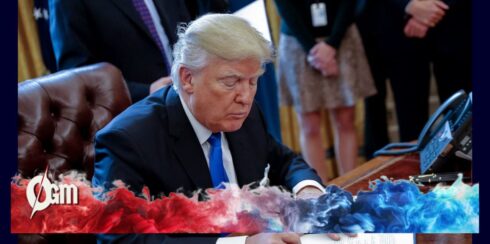Jack Teixeira, a 22-year-old U.S. Air National Guardsman, has been sentenced to 15 years in prison after pleading guilty to leaking classified Pentagon documents in one of the most significant intelligence breaches in recent history. Jack Teixeira’s actions not only compromised national security but also marked one of the largest violations of the Espionage Act in recent years. Jack Teixeira, stationed at an Air National Guard base, gained unauthorized access to sensitive information, including maps, satellite images, and intelligence about U.S. allies, which he shared on a popular online platform frequented by gamers.
The documents Jack Teixeira disclosed included confidential information related to the ongoing war in Ukraine, highlighting vulnerabilities in U.S. security protocols and sparking an internal review by the Pentagon. Prosecutors initially sought a 16-and-a-half-year sentence, emphasizing the gravity of Jack Teixeira’s actions. His defense, however, argued for a more lenient 11-year sentence, citing Jack Teixeira’s personal struggles, including alleged bullying and isolation. Ultimately, U.S. District Court Judge Indira Talwani decided on a 15-year sentence, underscoring the seriousness of the crime while acknowledging Teixeira’s age and potential for rehabilitation.
Details of the Leaked Documents and Their Impact
Jack Teixeira’s leaks primarily occurred within a private chat group on the Discord platform, where he initially shared the classified documents with a small circle of gun and military enthusiasts. The materials included sensitive maps, intelligence on U.S. allies, and classified updates on the conflict in Ukraine. While initially contained within this private group, the documents quickly spread to public platforms, including Telegram channels linked to pro-Kremlin entities and military bloggers, exposing the sensitive information to adversarial groups.
The disclosure of such critical intelligence had immediate consequences on global security and diplomatic relations. The Pentagon was forced to reassess its handling of classified information to prevent future incidents. The breach revealed potential flaws in U.S. intelligence-sharing protocols and prompted a review of security measures across military bases, aiming to prevent similar breaches by individuals in positions of trust with access to top-secret materials.
Arguments for a Lenient Sentence and Prosecutors’ Response
In their argument for a lighter sentence, Jack Teixeira’s defense attorneys painted a picture of a young man struggling with isolation and a difficult past, claiming that he had faced bullying both during his high school years and in his military unit. This alleged social isolation, according to his attorneys, contributed to his decision to share the documents, perhaps to gain a sense of camaraderie with like-minded individuals. Jack Teixeira expressed regret in court, stating that he accepted full responsibility for his actions and the consequences of his actions, including the weight of the sentence imposed.
Prosecutors, however, pushed back against the defense’s arguments for leniency, asserting that Teixeira’s actions were both deliberate and knowing. They argued that, despite understanding the risks and implications of his actions, Teixeira willingly chose to violate his oath and compromise national security. “Teixeira understood the risk to his country and did it anyways,” prosecutors argued, underscoring the intentional nature of his breach and the damage done to U.S. interests.
The Aftermath of the Case and Pentagon’s Response
Teixeira’s sentencing marks a significant chapter in the ongoing challenge of safeguarding classified information within the U.S. military and intelligence communities. The case has prompted the Pentagon to undertake a thorough review of its internal security protocols, specifically the mechanisms by which individuals in lower-ranking positions, like Teixeira, are granted access to sensitive information. Defense officials have already hinted at potential reforms, including heightened scrutiny for security clearances and the implementation of more robust monitoring tools to detect unusual access patterns.
The case serves as a cautionary tale for those entrusted with national secrets, reminding military personnel and government employees of the severe consequences of betraying that trust. Judge Talwani’s statement to Teixeira captured this sentiment, as she reminded him that, despite his youth and potential future, the severity of his actions warranted a significant penalty. As Teixeira begins his prison term, his case stands as a stark reminder of the risks associated with the unauthorized sharing of classified information and the government’s commitment to prosecuting such breaches to the fullest extent.














